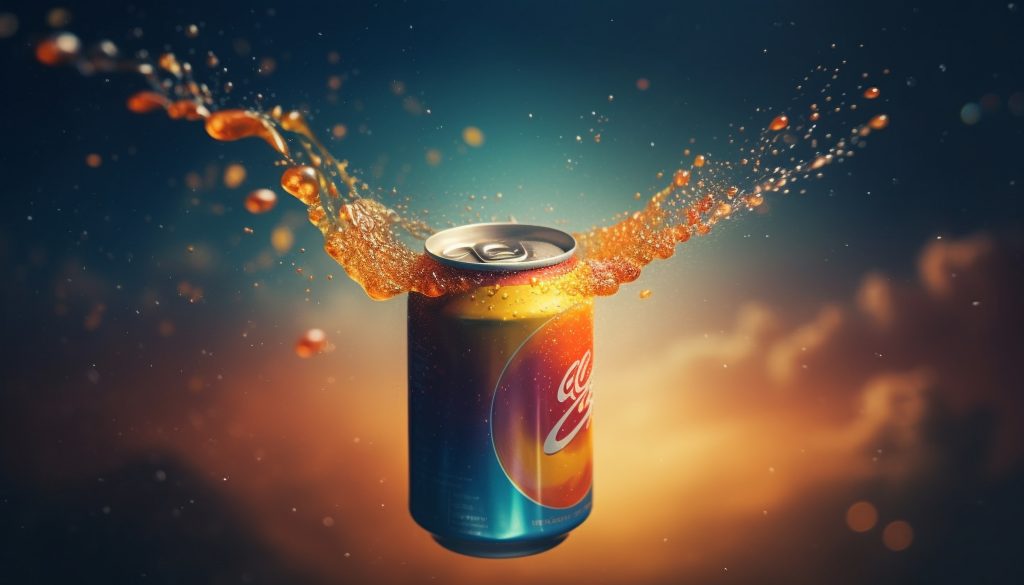Energy drinks have become an omnipresent element in our lives. They promise a rapid increase in energy and concentration, making them attractive to many people, especially young people looking to stay awake during long nights of studying or enjoy a dose of extra energy in their daily activities. These drinks, often loaded with caffeine and other stimulants, can provide a momentary boost, but their excessive consumption and, in particular, their availability to minors, has raised significant health concerns.
What Are Energy Drinks?
Energy drinks are products formulated to provide a temporary increase in energy and mental alertness. They contain a combination of ingredients, caffeine being one of the most prominent. In addition to caffeine, they usually include sugars, vitamins, amino acids, herbs and other components that are intended to stimulate the central nervous system.
Common Ingredients in Energy Drinks:
- Caffeine: It is the main and stimulant component. A single can of energy drink can contain up to 500 milligrams of caffeine, which far exceeds the amount present in a cup of coffee.
- Sugars: These drinks often contain high levels of added sugars, which can contribute to health problems such as obesity and cardiovascular disease.
- Taurine: An amino acid found in the human body and in certain foods, but used as a stimulant in these drinks.
- B Vitamins: Added to promote energy and nutrient metabolization.
- Herbal Extracts: Some energy drinks include herbal extracts such as ginseng and guarana, which are believed to improve alertness.
- Other Additives: May include ingredients such as ginkgo biloba, carnitine acid and glucuronalactone.
Nutritional Value of Energy Drinks
The nutritional value of energy drinks is of concern, particularly due to their high caffeine and added sugar content. These drinks provide empty calories and can contribute to unhealthy weight gain. Additionally, excessive caffeine consumption can have harmful side effects, such as insomnia, nervousness, and heart problems.
Caffeine, as the main active ingredient, is what often attracts young people. In many countries, and recently in Spain, specifically the community of Galicia, the question has been raised as to whether these drinks should be available to minors, given their potential impact on health.
Consumption of Energy Drinks by Minors
The consumption of energy drinks by minors has increased significantly in recent decades. Multiple surveys have revealed that a significant percentage of teenagers and young adults consume these drinks regularly. The easy access to these products, their aggressive marketing, and their availability in supermarkets, vending machines, and convenience stores has made them a common choice for many young people.

Consequences of Consumption in Minors:
Excessive consumption of energy drinks among minors has raised significant health concerns. In the short term, it can lead to problems such as insomnia, nervousness, increased blood pressure and fast heart rate. These effects are even more pronounced in young people, as their nervous system is still developing.
In the long term, regular consumption of energy drinks can have negative health effects such as obesity, cardiovascular disease and type 2 diabetes due to their high sugar content. Furthermore, the impact on young people's mental health should not be overlooked. Caffeine and other stimulants can contribute to anxiety, depression, and poor concentration in the educational environment.
The Galicia Initiative: Prohibition of the Sale of Energy Drinks to Minors
Given the growing concern about the consumption of energy drinks by minors, Galicia has taken a significant step by prohibiting the sale of these drinks to minors. This initiative is in line with the efforts of other countries and regions to address this public health problem.
Why Ban the Sale of Energy Drinks to Minors?
The prohibition on the sale of energy drinks to minors in Galicia is based on several fundamental reasons:
- Health Protection: The health of young people is a priority, and the ban seeks to reduce minors' access to drinks with a high caffeine and sugar content, which can have detrimental effects on their health.
- Prevent Excessive Consumption: Minors are more likely to consume these drinks in excessive quantities due to their lack of experience and knowledge about the associated risks. The ban seeks to prevent excessive consumption.
- Promote a Culture of Health: By prohibiting the sale of energy drinks to minors, Galicia sends a clear message that the health of youth is essential and that measures must be taken to promote healthy lifestyle habits from an early age.
- Reducing Public Health Problems: Excessive consumption of energy drinks among young people can lead to long-term public health problems. By prohibiting its sale to minors, the aim is to reduce the incidence of these problems.

Will this ban be effective?
The effectiveness of the ban on the sale of energy drinks to minors in Galicia will depend on the application and compliance of the measure. It is essential that traders and authorities rigorously enforce this restriction to ensure their success. In addition, an educational effort is necessary to raise awareness among young people about the risks associated with these drinks and promote healthier alternatives.
If you want to continue training in Intervention with minors, know all the details in our Postgraduate in Intervention with Minors.



